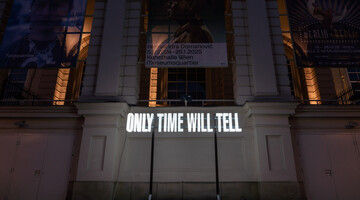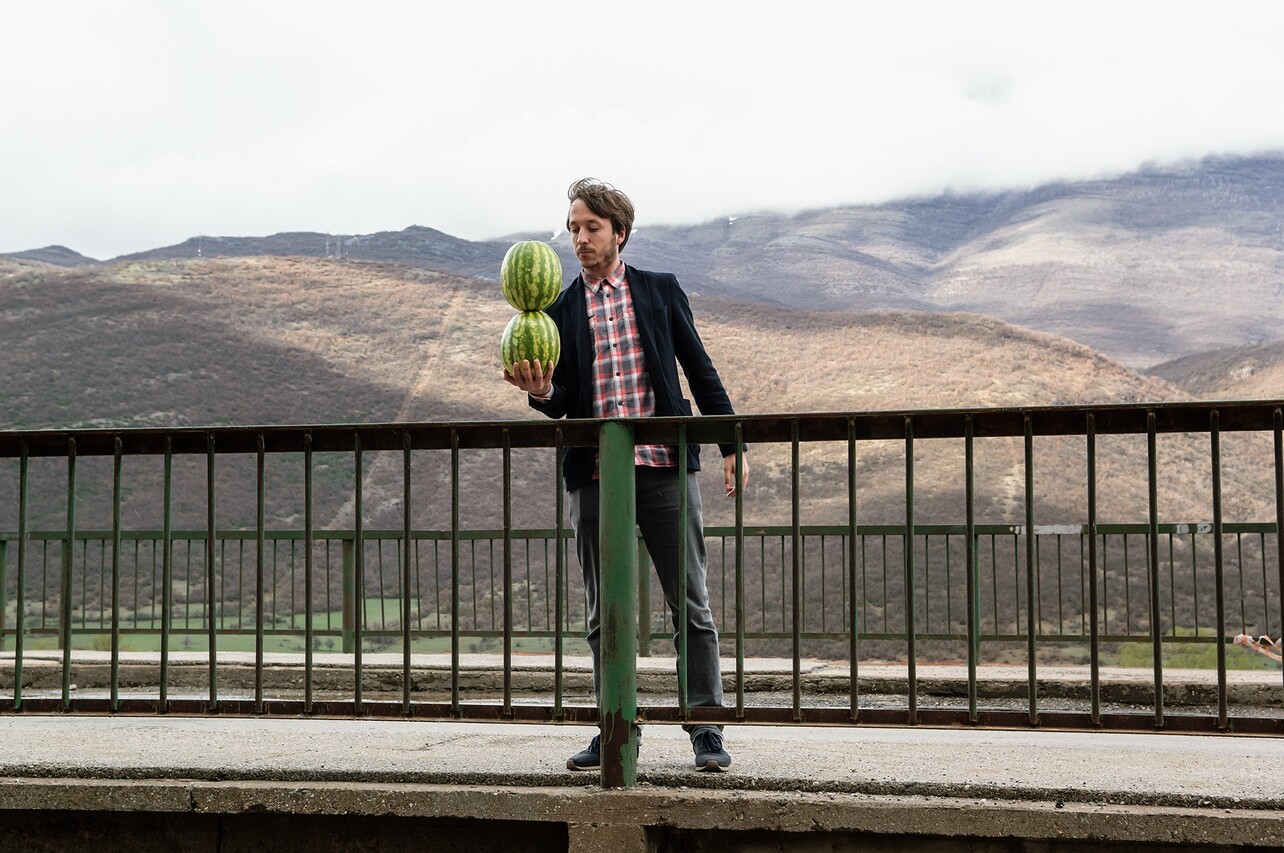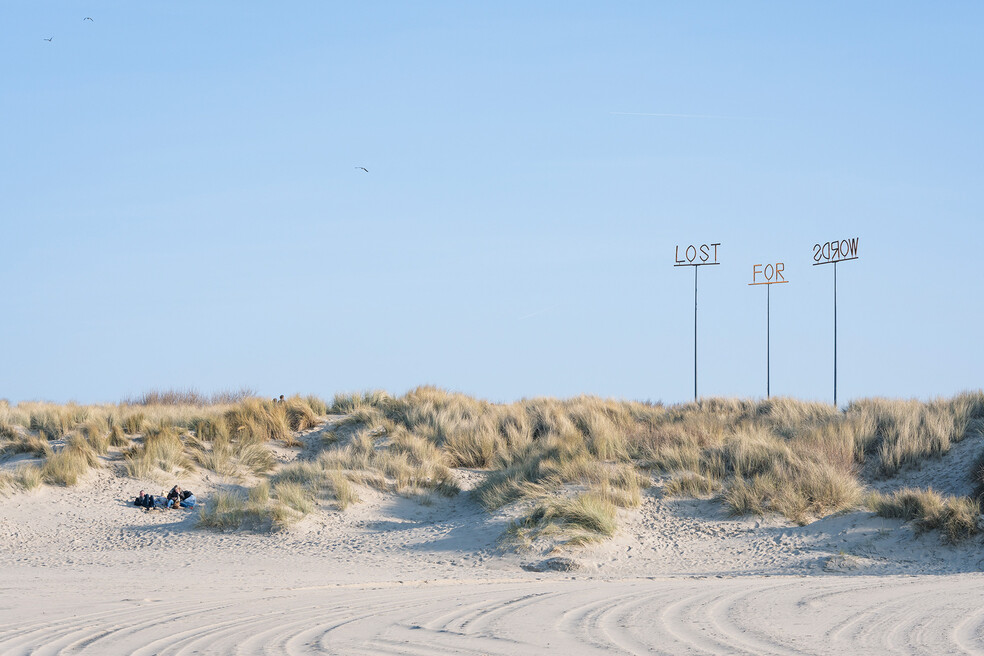
A Conversation with Hisko Hulsing
The Kosovan artist Driton Selmani uses poetic and humorous works to deconstruct our perception of reality. In doing so, he does not shy away from major concepts such as time, space, politics and history. His light installation ‘Only Time Will Tell’ can be seen in the MQ Main Courtyard until 21 April. MQ Journal spoke to him about it’s background.
Driton, your installation „Only Time Will Tell“ was described as a call to get actively involved and help shape the present and future. Where should we start?
"Only Time Will Tell" examines the idea that time exists only through the human mind's perception. Each moment is merely a fragment—real only until it passes, while the future exists solely in anticipation. For me, this understanding reveals how time is a construct of our imagination. Ultimately, it feels more cyclical than linear—a realization that encourages us to rethink our relationship with the present and how we shape what’s to come.

Driton Selmani — They Say You Can’t Hold Two Watermelons In One Hand, 2012; Foto: Manuel Carreon Lopez
Your works often engage in themes of identity and belonging. How much of yourself is in your “Only Time Will Tell” installation?
The installation reflects a personal connection, yet it transcends individual experience to become a 'rendezvous of experiences’ for others, thus addressing broader themes of identity and belonging. It is both an intimate monument to personal histories and a deliberate statement, inviting viewers to reflect on their own sense of time, place, and the complexities of political and historical contexts.
My perspective on time resonates with the empiricist philosophies of thinkers like David Hume and George Berkeley, who posited that our reality is filtered through individual observation, and what we perceive may not align with any objective truth.
“Only Time Will Tell” embodies this ambiguity, inviting viewers to confront the fluid boundaries between personal memory and collective history. In this way, the work reflects a part of me—my preoccupation with the limits of understanding and how we attempt to reconcile the subjective with the universal.
Words play a central role in you work – are there any poets you look at for inspiration?
I wouldn’t say poets, but I’m drawn to the unknown—it excites me. I Don’t Believe In Poets, But In Poems, Yes. My use of language isn’t about providing definitive descriptions but rather exploring the mystery and complexity inherent in words and their meanings.
I often investigate the pre-alphabet era, where hearing was believing. The introduction of the phonetic alphabet shifted this dynamic, replacing the magical world of the ear with the neutral, analytical world of the eye. As William Wordsworth wrote:
"The eye—it cannot choose but see;
We cannot bid the ear be still;
Our bodies feel, where’er they be,
Against or with our will."
For me, language is a powerful medium to provoke thought, evoke emotion, and challenge societal norms. Words are my primary artistic tool, used in diverse formats and contexts to engage audiences viscerally. They encourage a reconsideration of assumptions about time and experience, embracing paradoxes that reveal the elusiveness of reality. Ultimately, words have the potential to reshape perception, spark reflection, and even challenge the simulated realities we often find ourselves trapped within.
One of your works reads “I wish you were a plastic bag so that you could be eternal”. How do current concerns about ecology play into your art?
Ecological concerns are inescapable in the geography I inhabit. I didn’t choose plastic as a medium—it’s simply everywhere. But I observe, listen, feel, remember, and question,* recontextualizing it in contrast to Peter Handke’s approach towards tragedies and silence.
*quote by Peter Handke
Speaking of eternal: which aspects of your work do you want to outlast you into the distant future? What should people take from it?
The only lasting fermentation of significance is humor—timeless, incisive, and resilient. Good humor transcends eras, devoid of an expiry date. It disarms, connects, and reveals truths that persist beyond fleeting cultural contexts. I seek it, embody it, and plant it as a seed for the future—a quiet yet potent force that shapes how we navigate and interpret the complexities of existence.
Driton Selmani, born 1987 in Ferizaj, Kosovo. He currently lives and works between Prishtina and Doganaj. He completed his master's degree at the Arts University Bournemouth, UK. He has participated in numerous solo and group exhibitions, including at the Stacion Center for Contemporary Art Pristina, Ludwig Múzeum Budapest, Kunstraum Niederösterreich Vienna, Casa São Paulo, Mediterranea Biennale 16 Ancona, U10 Belgrade, 5. Marrakech Biennale, and many more.
This interview was conducted by Bernardo Vortisch.







